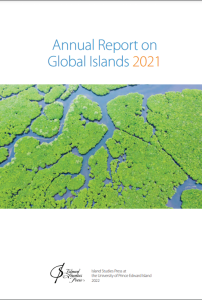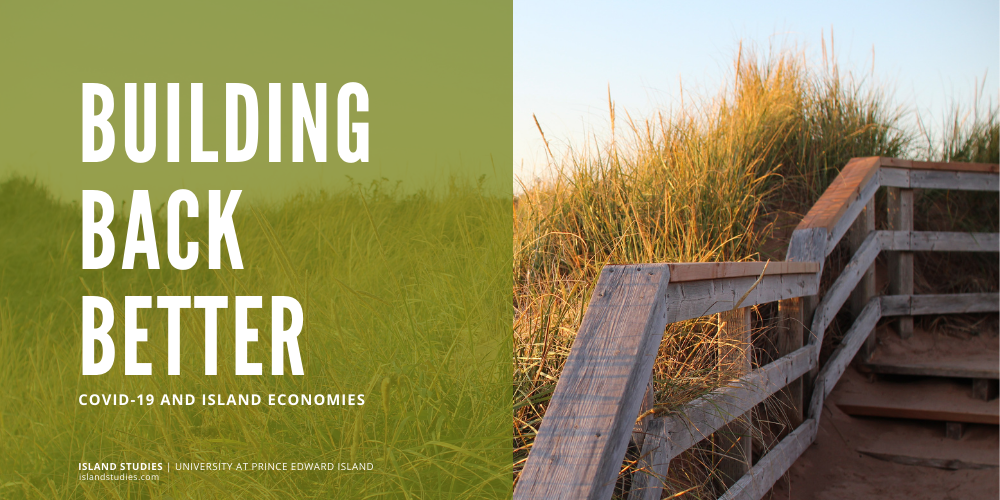Islands Economic Cooperation Forum
ANNUAL REPORT ON GLOBAL ISLANDS 2021
The Annual Report on Global Islands 2021 was published in April 2021 by Island Studies Press in partnership with the Foreign Affairs Office of Hainan Province.
Editor is Dr. James (Jim) Randall, Professor Emeritus, Island Studies, University of Prince Edward Island, Canada.
“Last year, the theme of the Annual Report on Global Islands was the impact of the COVID-19 pandemic on island development. Unfortunately, the pandemic continues to affect the social and economic development of island nations and territories. However, rather than publishing a ‘2.0’ version of last year’s COVID-19 themed report, we have opted to explore the progress by island governments in addressing the United Nations’ Sustainable Development Goals (SDGs), as well as issues related to carbon neutrality, trade, and tourism. Examining the 2030 Sustainable Development Goals on islands allows us to look more closely at how jurisdictions may be building resilience so that they are better prepared for future extreme events.”
JAMES RANDALL, EDITOR
TABLE OF CONTENTS
PART I: A BACKGROUND TO ISLAND ECONOMIES
INTRODUCTION
James E. Randall, University of Prince Edward Island, Canada.
CHAPTER 1: The State of Island Economies and Development in 2021
James E. Randall and Yue (Craig) Su, University of Prince Edward Island, Canada
PART II: ISLAND SUSTAINABILITY AND THE SUSTAINABLE DEVELOPMENT GOALS
CHAPTER 2: Islands and the Sustainable Development Goals: A Holistic Perspective
Preeya S. Mohan, University of the West Indies, Trinidad and Tobago.
CHAPTER 3: Progress and Success by Sovereignty? The Attainment of the Sustainable Development Goals in Small Island States, Small Island Developing States, and Subnational Island Jurisdictions Stefano Moncada, University of Malta, Malta, and James E. Randall, University of Prince Edward Island, Canada.
PART III: ISLAND ECOLOGICAL ENVIRONMENTAL PROTECTION, TRADE, AND TOURISM
CHAPTER 4: Islands, Climate Change, and Net Zero
Francesco Sindico, University of Strathclyde Law School, Glasgow, Scotland.
CHAPTER 5: Economic Growth Through Trade Liberalization for Small Island Developing States in the Pacific: Regionalism Versus Globalization
Cheryl Carmichael, Island Studies, University of Prince Edward Island, Canada, and George Jia, Department of Economics, University of Prince Edward Island, Canada.
CHAPTER 6: Exploring the Use of Environmental Instruments as a Method to
Promote Sustainable Tourism in Islands
Sonya Graci, Ted Rogers School of Hospitality and Tourism Management, Ryerson University, Canada.

